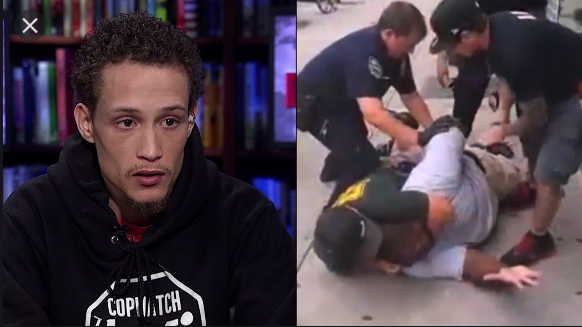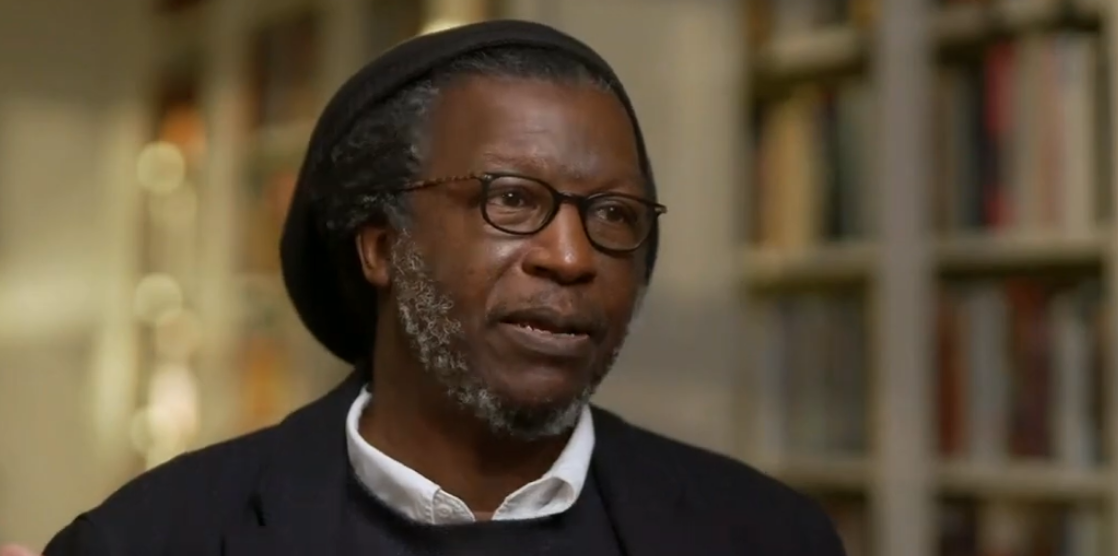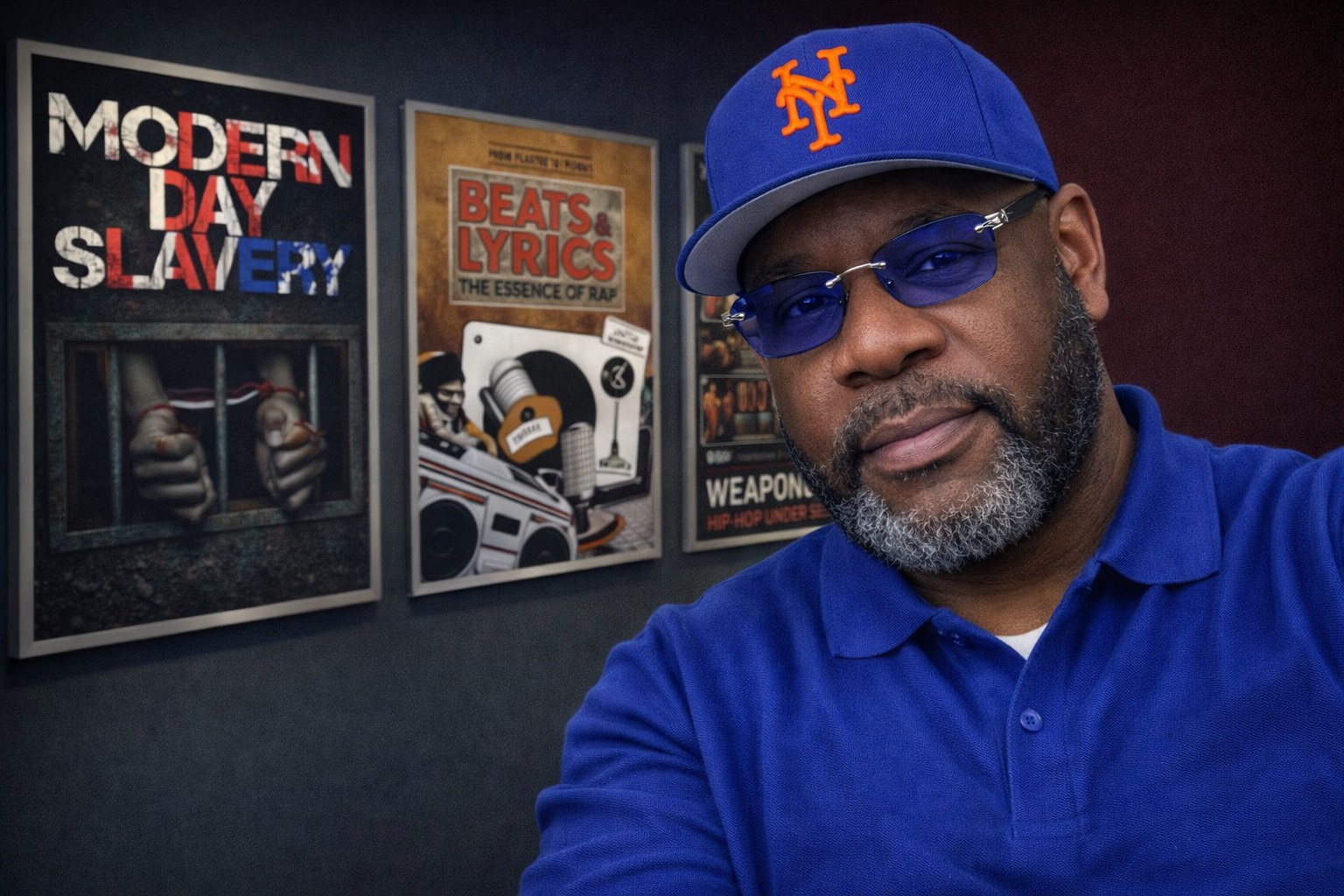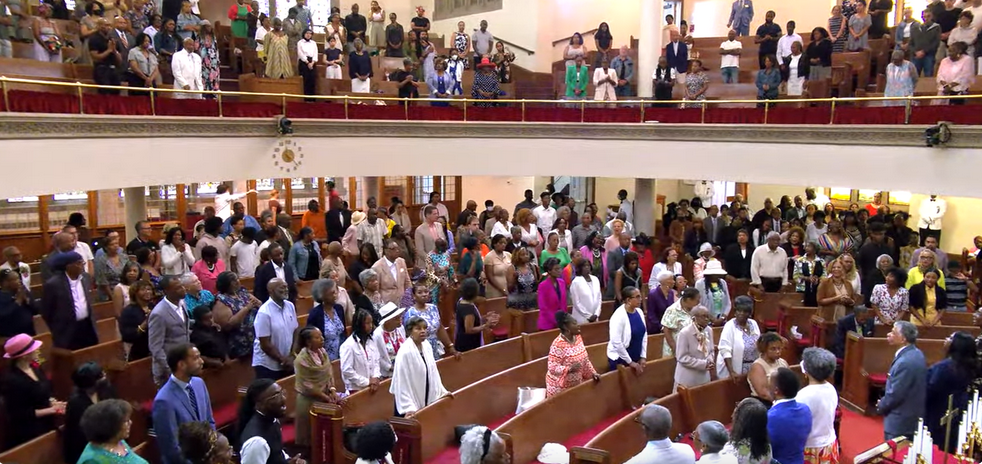[Int. 721-A\Right to Record Act]
Williams: “The right to record can allow a level of accountability in incidents with officers acting inappropriately. Ramsey Orta, for example, filmed the last words of Eric Garner in Staten Island after ex-officio Daniel Pantaleo applied a fatal chokehold.”
Photo: YouTube
Ramsey Orta, the man who filmed the murder of Eric Garner, was targeted by the NYPD because of the recording.
New York City Public Advocate Jumaane D. Williams pushed for the passage of legislation that would codify and protect the right of civilians to record police officer activity Tuesday at a City Council hearing on police reform.
This hearing comes after video of a Minneapolis police officer killing George Floyd has spurred a national movement for an end to policing injustice and videos taken at these protests have shown further officer misconduct.
Int. 721-A or the Right to Record Act, first introduced in 2016, would codify a person’s right to record New York City police officers or peace officers acting in their official capacity, with limited exceptions. The bill also allows any individual whose rights are violated to sue the City in state court, and requires reporting related to filming police activities. The legislation came after a number of prominent instances when civilians’ right to record was deliberately infringed.
In discussing the legislation, the Public Advocate highlighted several incidents captured on video during the recent protests, including his own encounters, saying “Were it not for recordings of officers, we would not know videos of officers hitting a cyclist with batons, an officer physically pushing a woman to the ground, and officers arresting an essential food delivery worker, or many others. All of these incidents were recorded. I used my own phone to record incidents that were not believed. Imagine if they were not. Imagine if we were not aware. Would justice be sought?”
The Public Advocate also spoke about instances in which there prevention from or retaliation for recording officer actions, saying “There are countless stories of people who were simply recording officers, and their right to do so was interfered with by the police. From 2014 to 2016, CCRB investigated 257 complaints involving officers interfering with video recording. Most of the complaints involved officers using physical interference to prevent the recordings. This cannot happen. We must ensure every person is entitled to their right to record a police officer without the fear of repercussion. This includes journalists, and I am frightened by recent reports that the press is being stopped and even arrested just for doing their job.”
The Public Advocate urged the administration to support the legislation and for the Council to move to pass the bill. His full statement is below.
TESTIMONY OF PUBLIC ADVOCATE JUMAANE D. WILLIAMS TO THE COMMITTEE ON PUBLIC SAFETY – LEGISLATIVE HEARING JUNE 9, 2020
Good Morning,
My name is Jumaane D. Williams, Public Advocate for the City of New York. I want to thank Chair Donovan Richards for that awesome and powerful opening statement and for having this hearing that we will be reviewing legislation today. I would like to thank the Speaker for that powerful opening statement in which there was acknowledgement on what you could have done better instead of getting defensive. It was a statement that I wish the Mayor and the Governor would listen to and take steps to do the same thing.
What we’ve seen from both of them – although the governor has been slightly better – Both of them in response to the protests about excessive force and over policing, about laws that increase tensions in communities, about not being believed when people speak of their experience, they both responded to that with more police and aggressive policing, a curfew or law that caused more increased tension and again not believing what people said was happening to them. Including me the highest-ranking Black elected official in New York City. It was both insulting, it lacked leadership, and was dangerous for all of us.
I want to add my voice to acknowledging the people who are still demonstrating in our streets for justice. We cannot ignore voices, they will not be ignored, and we must acknowledge their demands to prevent police brutality and racial injustice that happens too frequently whether in Minneapolis with the murder of George Floyd or right here with the many, many cases we know all too well. Cases that this Mayor can address like officers who were never brought to account for the death of Eric Garner or officers who killed Delrawn Smalls.
Among the legislation being heard today, my bill, Intro 721-A, codifies the right to record New York City police and peace officers. I want to make it very clear that Int. 721-A does not permit anyone to interfere with an official lawful police function. It does however affirm everyone’s right to record them. In the event that an officer unlawfully seeks to prevent a recording, threatens, intimidates, or issues a summons or arrest simply because someone is recording police activity, individuals can bring an action in any court to seek relief or other remedies. Int. 721-A also requires the Commissioner to issue quarterly reports of arrests and summons issued when persons record police activity. There may be no better time to pass this legislation as we continue to see people in our City and across this country demand accountability.
Were it not for recordings of officers, we would not know videos of officers hitting a cyclist with batons, an officer physically pushing a woman to the ground, and officers arresting an essential food delivery worker, or many others. All of these incidents were recorded. I used my own phone to record incidents that were not believed. Imagine if they were not. Imagine if we were not aware. Would justice be sought? Would the status quo continue? Sadly, even with the video, sometimes there is no justice.
Take the case of Rayne Valentine, an essential worker at Kings County Hospital, as he left work on May 30th. While walking near the Church Avenue subway station, he saw the crowds of protesters and police officers. Rayne took out his phone to record, leading to shouts from officers to “move back.” Rayne then was pushed and beaten by officers, who quickly stopped and gave him back his phone. Afterward, Rayne, bloodied from what happened, went back to the hospital for injuries he sustained. All because he was recording officers.
Before these protests, there were other examples of police in the City inappropriately responding to recordings. Back in May, while walking her dog, a defense attorney saw officers stopping young men near Tompkins Street and Decatur Avenue. She began to record the interaction before officers approached her. While the people stopped by police were let go, the attorney was arrested and detained.
There are countless stories of people who were simply recording officers, and their right to do so was interfered with by the police. From 2014 to 2016, CCRB investigated 257 complaints involving officers interfering with video recording. Most of the complaints involved officers using physical interference to prevent the recordings. This cannot happen. We must ensure every person is entitled to their right to record a police officer without the fear of repercussion. This includes journalists, and I am frightened by recent reports that the press is being stopped and even arrested just for doing their job.
Let’s make something very clear– there is no local law that makes it illegal to record the police. In fact, federal and state law allow people to record in a public space. However, we have seen officers inconsistently respond to recordings of their actions. We do not need to see images of people arrested while holding our officers accountable. We do not need officers picking and choosing who gets to record and who does not. It is time for a uniform policy, and Intro 721-A would do that.
The right to record can allow a level of accountability in incidents with officers acting inappropriately. Ramsey Orta, for example, filmed the last words of Eric Garner in Staten Island after ex-officio Daniel Pantaleo applied a fatal chokehold. Even though it took five years for Pantaleo to be fired for causing the death of an innocent man, this incident stressed the importance of a right to record. We still haven’t had an account for the other officers who caused the death, and my understanding is that Mr. Orta is released from jail.
I thank the chair for allowing me to speak today, and I thank the Councilmembers, including the chair, for co-sponsoring this legislation. This legislation is part of solutions that advocates have requested for holding police accountable. I want to also mention that we have to get this right for everyone. I want to lift up all folks, including officers who were hurt because their families expect them to come home the way they came. When we put officers in situations they shouldn’t be in, it’s not fair for them and it’s not fair for the communities. We have to get this right.
We also have to remember that this is not just policing. Everything we talk about in every institution, in every city and state in this country. I have to remind people that you do not have to be a racist and a bigot to be a part of continuing in an institution stepped in racism and bigotry. Once we can come to grips with that, I think we can move much further, much swifter, much bolder.
I too am sorry that the Commissioner is not here, this is a conversation he must necessarily be a part of it. I want to say thank you to Black women who spoke up today. Councilmembers Gibson and Ampry-Samuels, thank you for your leadership.
We cannot wait for the next incident of police interference or misconduct to make a decision on such a common sense measure. If all we get is 50-a and a reduction of the police budget, then all of this was not worth it. Let’s use this time to go further, to go bolder, to create the society we all said we wanted. Thank you.






